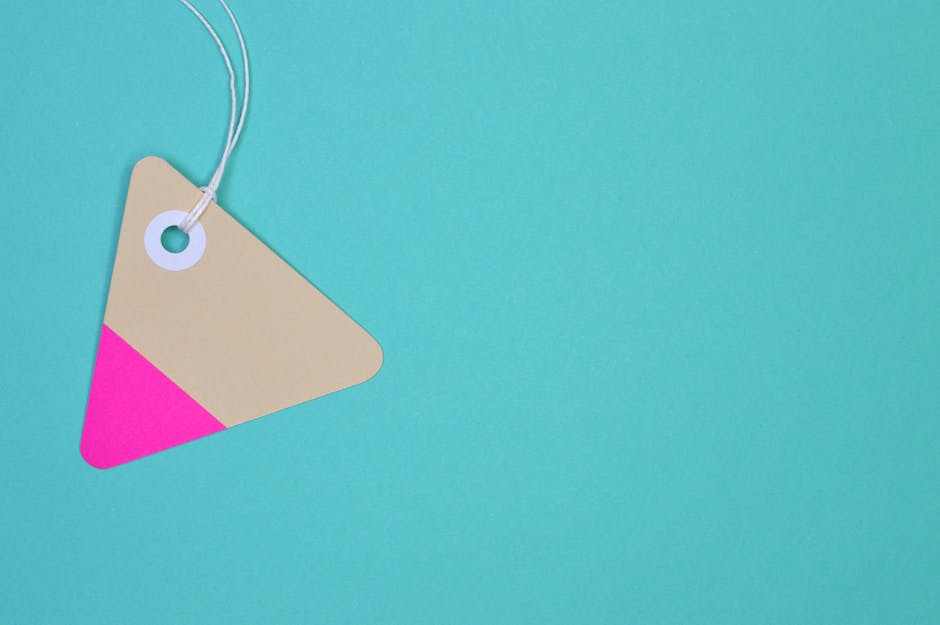Custom Web Design vs Templates

Table of Content.
- What is Custom Web Design?
- Understanding Template Websites
- Pros of Custom Web Design
- Pros of Template Websites
- Cons of Custom Web Design
- Cons of Template Websites
- Which is Right for You?
What is Custom Web Design?
Custom web design is like having a tailor-made suit for your website. It's designed from scratch to fit your business needs perfectly. This type of web design means you have a unique layout that matches your brand, rather than using a pre-made template.
Think of a custom website as a blank canvas. You and the web designer can add features that are important for your business. For example, if you run an online store, you might want a checkout process that is easy to use. A custom design allows you to have these specific features.
Custom web design often involves working closely with a designer. They will understand your goals and what makes your business special. This means your website can have a unique look and feel, which can make a strong impression on visitors.

Understanding Template Websites
Template websites are pre-designed web pages that you can customize. These templates offer a variety of styles and layouts. They are like ready-made clothes; you can choose one, make small changes, and it fits your needs. Many popular platforms provide these templates, making them accessible to everyone.
You don't need to be a coding expert to use template websites. With simple drag-and-drop features, you can add text, images, and more. This makes them ideal for individuals or small businesses with limited budgets. However, the design options can be limited. You might see other websites with a similar look.
While templates offer convenience, they may not fully capture your brand's unique identity. For those seeking a distinctive online presence, the limitations of templates could be a drawback.
Pros of Custom Web Design
Custom web design offers unique advantages that make it a standout choice for many businesses. First, it provides a personalized look that reflects your brand. Imagine your website as your digital storefront. You want it to look just like your brand's identity. With custom design, you can choose colors, fonts, and layouts that match your business perfectly. This helps in creating a strong brand image.
Another benefit is flexibility. Custom websites can be built to fit exactly what you need. Whether it's a special feature or a unique layout, you get to decide how your site works. This is different from templates, which often have limits. For example, if you want a booking system or a specific gallery style, a custom design can make it happen.
SEO is another area where custom web design shines. Custom sites can be optimized for search engines from the ground up. This means your site can be more easily found by people searching for your products or services. A template might not offer this level of optimization.
Lastly, custom web design can grow with your business. As your needs change, your site can change too. If you start selling new products or offering new services, your website can adapt. This adaptability is crucial for staying competitive in the ever-changing online world.
Pros of Template Websites
Template websites offer a quick and easy way to get your site up and running. They come pre-designed, so you don't need to worry about starting from scratch. It's a bit like buying ready-made clothes instead of sewing your own. You pick a design you like, adjust the colors, and add your content. This simplicity can save you time, especially if you're not tech-savvy.
These templates are usually more affordable than custom web design. Many small businesses or startups find this cost-saving aspect appealing. You're not paying for a designer's time, just the template itself. This can be a smart choice if you're on a tight budget.
Templates often come with built-in features. These might include contact forms, galleries, or even basic e-commerce options. You get the tools you need without extra effort. Just drag and drop your content into the provided slots. This means you can focus more on what you want to say on your website.
Lastly, templates are often tested for performance and compatibility. This means they're likely to work well on different devices and browsers. Your site should look good whether someone views it on a phone or a laptop. This can give you peace of mind knowing your site is accessible to a wider audience.

Cons of Custom Web Design
Custom web design can be a fantastic choice for businesses wanting a unique online presence. Yet, there are some drawbacks to consider. One big downside is the cost. Custom web design usually requires a larger budget than using templates. When you're opting for a tailor-made site, you're paying for the expertise of designers and developers. This means more dollars out of your pocket.
Time is another factor. Creating a custom site can take weeks or even months. You might be eager to launch your business website, but building a custom one demands patience. Developers need time to understand your vision, create designs, and then code everything from scratch. This process doesn't happen overnight.
There's also the issue of maintenance. Once your custom site is live, it might need regular updates. These updates can cost money and require more time. Unlike template websites, which often have automatic updates, custom sites may need a developer to make changes.
Another thing to think about is the technical skill required. If you decide to make small changes on your own, you might find it challenging. Custom sites can have complex code, making it tough for those without tech skills to tweak.
Scalability could be a concern as well. If your business grows fast, your custom site may need adjustments to handle increased traffic. This might involve extra costs and effort to ensure your site runs smoothly.
Security is crucial for any website. Custom sites need a strong security plan to protect against cyber threats. This requires additional resources and expertise, which can add to the overall cost.
Lastly, there's the risk of relying on a single developer or team. If they're unavailable or stop offering services, finding someone else to take over can be tricky. This dependency could pose a risk to your website's long-term success.

Cons of Template Websites
Template websites might seem appealing due to their ease of use and cost-effectiveness, but there are drawbacks to consider. One major issue is the lack of uniqueness. When using a template, your site may look similar to many others. This can make it challenging to stand out in a crowded marketplace. Imagine visiting a website and feeling a sense of déjà vu because it looks just like another you've seen. That's the risk with templates.
Another problem is limited customization. Templates often come with pre-set layouts and features. While this might suit some, it can restrict creativity and functionality. If you need a specific feature that the template doesn't support, you might be out of luck. For instance, a business owner wanting a unique booking system may find templates lacking.
SEO, or search engine optimization, can also be a concern. Templates might not be optimized for search engines. This means your site could struggle to rank well in search results. A site that doesn’t show up on the first page of Google might miss out on valuable traffic. Some templates have bloated code, which can slow down your site. Slow websites can frustrate visitors leading them to leave before the page fully loads.
Technical support is another area where templates can fall short. When issues arise, you may find limited or generic support. Template providers often offer basic help, which might not cover specific technical difficulties. This can leave you in a bind if your site goes down or develops bugs. Imagine having a website issue right before a big sale and not being able to get the help you need quickly.
Finally, templates can become outdated. Web design trends change, and a template that looked modern a few years ago might seem old-fashioned now. This could impact how users perceive your business. Keeping your site fresh and relevant is crucial, and templates might not always offer updates to keep up with design trends.
In the end, while templates are an option, they come with limitations that can affect your site's performance and appeal. For those wanting a unique and fully customized online presence, templates might not be the best choice. Each business has different needs, and understanding these cons can guide you in making the best decision for your website.
Which is Right for You?
Choosing between custom web design and templates can feel like a big decision for any business. Let's break it down to help you find the best fit.
Custom web design is like building a house from scratch. You have the freedom to decide every detail. This means your website can be unique, aligning perfectly with your brand. It's a great choice if you want features that are specific to your needs. For example, a custom website might include a personalized ecommerce section or a unique portfolio layout. The flexibility allows your site to grow as your business grows.
But, custom web design often requires a bigger budget and more time. You need a team that understands your vision and has the skills to bring it to life. This can be an investment, but if your business relies heavily on online sales or has complex needs, it might be worth every penny.
On the flip side, templates are like ready-made houses. They are quicker and cheaper to set up. You choose a design you like, and then adjust it to suit your style. Templates are popular with small businesses or startups that need to get online quickly without spending too much. They're often user-friendly, allowing you to make changes without needing a web developer's help.
However, templates can be limiting. You might find another business with the same design. If your brand needs to stand out or if you need special features, a template might not cut it.
Think about your goals. If you need a standout online presence, custom web design could be the way. But if you need something fast and budget-friendly, a template is a solid choice. Consider your budget, timeline, and the importance of uniqueness to your brand. These factors can guide you toward the right decision.
FAQ
What is the main difference between custom web design and template websites?
Custom web design is a tailored approach that builds a website from scratch to meet specific business needs, offering uniqueness and flexibility. In contrast, template websites use pre-designed layouts, streamlining the development process with ready-made structures.
How do I know if custom web design is the right choice for my business?
If your business requires a unique brand identity, specific functionalities, or advanced scalability, custom web design is likely the better option. It provides the flexibility to create a site tailored to your exact needs, though it requires a higher investment in time and resources.
What are the advantages of using a template website?
Template websites are affordable, quick to deploy, and user-friendly. They are ideal for small businesses or startups that need an online presence without the high costs and time commitment of a custom design.
What are the potential drawbacks of custom web design?
Custom web design can be costly and time-consuming, requiring more resources and expertise. Its complexity might not be necessary for businesses with straightforward needs or limited budgets.
Are there any limitations to using template websites?
Template websites can lack uniqueness and flexibility in design and functionality. They may not fully align with a specific brand identity and could face limitations when trying to implement unique features or complex customizations.
Can template websites be SEO-friendly?
Yes, many template websites are designed with SEO in mind, offering features like mobile responsiveness and clean code. However, they might not offer the same level of optimization as a custom site tailored specifically for SEO strategies.
How should I decide between custom web design and templates?
Consider your budget, timeline, and specific business needs. If you need a unique, scalable solution with specific functionalities, custom web design is ideal. For a quick, cost-effective solution, especially if your needs are simple, a template website could be the best fit.